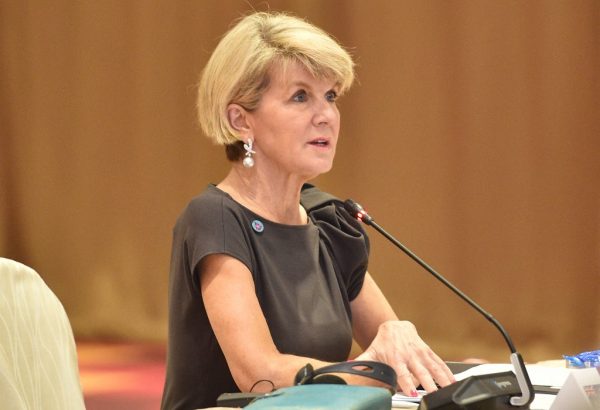Is Gen Prawit maneuvering to become Thailand’s next PM?

Since his very first day as acting prime minister, Gen Prawit Wongsuwan has aroused suspicion that he intends to take the post from the current holder.
General Prayut Chan-o-cha was suspended as PM by the Constitutional Court on August 24 pending its ruling on whether his eight-year tenure has ended.
For many political analysts, Prawit has proved to be a more mature and astute politician than Prayut. Prawit, they say, has done better than his junior Army ex-classmate in concealing his emotions and political ambitions.
Setting sights on premiership
Analysts say that the moves Prawit has made as acting prime minister indicate his sights are set on more than just a temporary role. But they see almost zero chance of him fulfilling a desire to cement his premiership in the current parliamentary term.
“I think Prawit deeply wants to become prime minister but this is unlikely to happen in the current term. It may be possible after the next general election,” said Yuthaporn Issarachai, a political scientist from Sukhothai Thammathirat Open University (STOU).
Among Prawit’s significant moves as acting PM was to offer an olive branch to Bangkok governor Chadchart Sittipunt. Prawit phoned the governor on August 28 to offer government support in combating Bangkok’s seasonal flood problems. He called again five days later to discuss flood prevention measures.
Chadchart was a PM candidate for the opposition Pheu Thai Party at the 2019 general election and is considered a major rival to the current government.
Prawit has also made more frequent visits to the provinces since becoming acting PM.
His busy schedule this month includes at least three trips upcountry – to Krabi province on September 5, Tak on September 12, and the far South’s Narathiwat on September 19.
Meanwhile, Prayut continues to serve in his post as defense minister. He visited Ayutthaya province last Friday (September 2) to inspect an Army flood prevention project.
However, Prayut appeared to keep his distance from local residents who came to welcome him, while Prawit allowed locals to get close to him. The acting PM was even spotted being kissed by a female well-wisher during his visit to Chachoengsao province.
‘Strength powered by the heart’
And Prawit’s recent behavior also offers other hints he may be eager to become prime minister on a more permanent basis.
Yuthaporn noted that Prawit seems to have become more energetic after assuming the role of acting premier. When this was called to his attention by reporters last week, Prawit said his physical strength was powered by his heart.
Not long ago, the 77-year-old was being mocked by critics after being seen walking unsteadily and leaning on his aides for support. But since becoming acting PM, the hints of frailty have disappeared to be replaced with a more energetic-looking stature.
Meanwhile, observers have begun making comparisons between Prawit and Prayut, pointing to the differences in their style of management and political maneuvering.
“Prawit appears to do better than Prayut as a politician. He is far more seasoned. Prawit seems to be gaining popularity among both politicians and voters while Prayut always looks down on politicians and ignores voters’ voices,” STOU’s Yuthaporn said.
‘Prayut to stay no matter what’
However, the analyst reckons Prayut will survive the legal challenge over his tenure, citing the air of confidence on the government side. And if the Constitutional Court does rule against him, Prayut could still serve as a caretaker prime minister, Yuthaporn said.
The expert explained that the PM’s eight-year term limit as stipulated by the current charter does not include a period during which he carries out duties after vacating office.
As such, if the court rules that Prayut’s eight-year term expired on August 24, he would immediately lose his premiership and all his Cabinet members would have to vacate their seats along with him. Then Prayut and his Cabinet would serve as a caretaker government until Parliament elects a new prime minister to form a new government.
The law does not set a time limit for Parliament to elect a new PM. So Prayut could continue as caretaker PM until after the Asia-Pacific Economic Cooperation (Apec) summit is hosted in mid-November or even until next year, before dissolving the House and calling a general election, many analysts said.
The House of Representatives’ four-year term expires in March 2023.
The Constitutional Court’s task in the tenure-expiry case is to interpret Article 158 of the Constitution. It states: “The prime minister shall not hold office for more than eight years in total, whether or not consecutively.”
In Prayut’s case, the question hinges on when his eight-year term began – when he first assumed the premiership on August 24, 2014, after the military coup in May that year, when the current Constitution came into force on April 6, 2017, or when he became premier on June 9, 2019, after the first general election was held under this charter.
Prawit’s chance to become PM
If the court rules that Prayut’s eight-year tenure is already over, both Houses of Parliament would then vote for a new PM from the list of candidates at the previous general election in March 2019.
Prawit, the leader of the ruling Pracharath Party, was not nominated as its prime ministerial candidate in the 2019 election.
The existing list features five candidates – Anutin Charnvirakul and Abhisit Vejjajiva from the coalition’s Bhumjaithai and Democrat parties, respectively, and Chaikasem Nitisiri, Chadchart Sittipunt and Sudarat Keyuraphan from the opposition Pheu Thai Party.
Palang Pracharath would have no candidate as Prayut was its only nominee for PM.
For Prawit to be voted in as the next PM, both Houses would first need to agree to waive the current list of candidates and add more candidates for parliamentary selection. Exempting the current list would require support from at least two-thirds of both Houses.
The key factor in any bid by Prawit to become PM in this term would be supported from the 250 senators appointed by the post-coup junta, of which he and Prayut were part. But analysts agree that it would be difficult for Prawit to achieve such backing.
“Prawit can control Palang Pracharath MPs but most of the senators back Prayut. If those senators opt not to vote for him, Prawit’s desire won’t be fulfilled,” said Yuthaporn.
By Thai PBS World’s Political Desk






